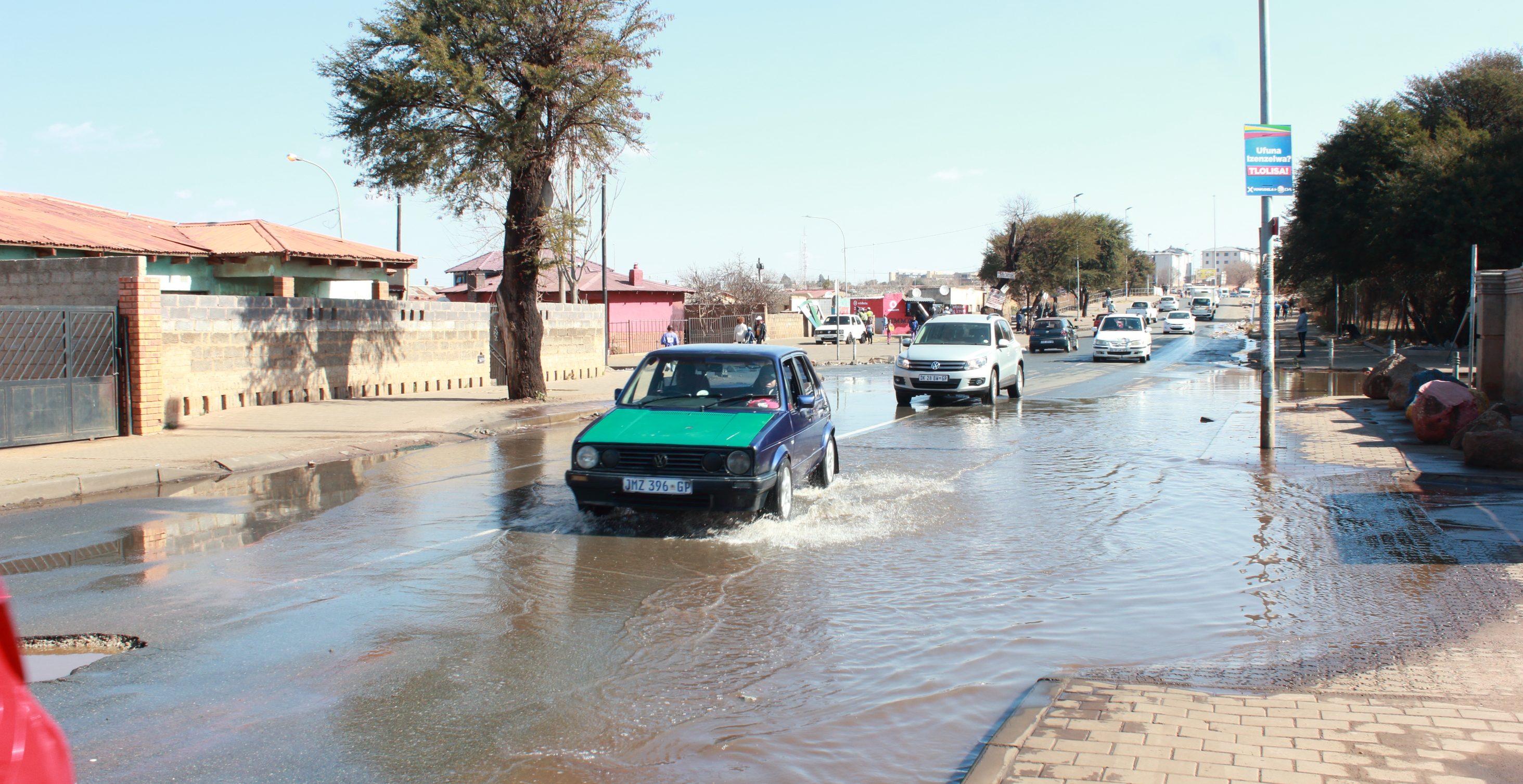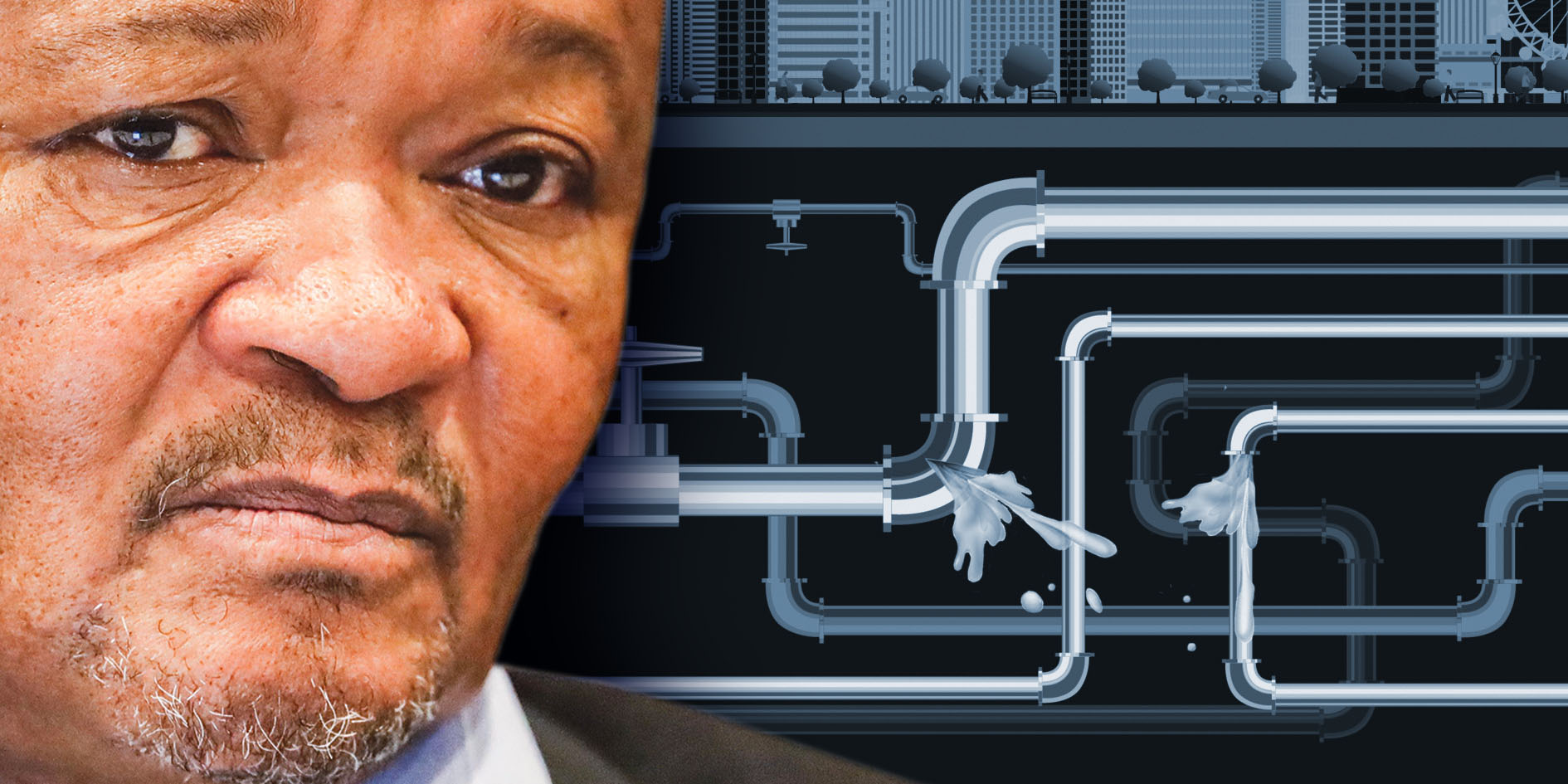Speaking in Durban, Water and Sanitation Minister Senzo Mchunu spoke out sharply against the “embarrassingly dirty” state of South Africa’s rivers, roasted “idle” municipal officials and decried the “criminal” wastage of clean water gushing out of broken pipelines across the country.
While acknowledging that many municipalities had been given “huge responsibilities” to provide effective water and sanitation services, Mchunu said they should also realise that money would not drop magically from heaven.
Mchunu argued that municipalities were already receiving significant revenue from water services supplied to customers, but not enough of this money was being ploughed back into the maintenance of vital water and wastewater treatment infrastructure.
Instead, a common municipal refrain was to blame budget shortages, whereas maintenance had not been prioritised sufficiently in many local government budgets.
Instead of allocating sufficient water service revenue to renew or maintain infrastructure, this money was often “going to salaries and other things” and insufficient water service revenue was ring-fenced for operations, maintenance and upgrades.
 Selina Lekgau collects water from a broken tap in Marulaneng, Limpopo, after spending the night waiting for water from a leaking pipe to fill up a hole. (Photo: Lucas Ledwaba / Mukurukuru Media)
Selina Lekgau collects water from a broken tap in Marulaneng, Limpopo, after spending the night waiting for water from a leaking pipe to fill up a hole. (Photo: Lucas Ledwaba / Mukurukuru Media)
“This [situation] is not new. It comes from the way in which we have allowed things to deteriorate… Our rivers are embarrassingly dirty… We are a water-scarce country, but we still have just enough water — provided that municipalities stop leaking water the way they are doing now.”
Speaking in Durban on Wednesday at a function to launch four new catchment management agencies, Mchunu noted that at least 46% of water in the city was going to waste from pipeline leakages (while the “non-revenue water” account currently sits at around 56% in the eThekwini Municipality).
Read more in Daily Maverick: Billions down the SA big-city revenue drain as 40% of purified water is lost to pipe leaks
‘Someone needs to be arrested’
“It’s almost criminal — and if I do come back [as water and sanitation minister in the new administration] I’m going to be very tough with municipalities. You can’t keep walking across streets with rivers of clean water going to waste. Someone needs to be arrested. I’m not threatening — I’m just making a statement.”
All too often, he suggested, officials and staff responsible for water and sanitation services were not “cut out” to do what was required.
This situation reminded him of an image he had seen depicting two cartoon characters with a caption bubble reading: “Sometimes I just sits and thinks … and sometimes I just sits.”
“We are seeing workforces in some municipalities that just sits — and we need to correct that.”
Mchunu, who was appointed as national water and sanitation minister in August 2021 and received praise in several quarters for reinstituting the national Blue Drop and Green Drop performance monitoring schemes and other initiatives to improve service delivery, suggested that his portfolio could no longer be viewed as a “retirement home for politicians”.
“Our department has not been functional in the past — that era has gone forever,” he asserted.
 Motorists drive through water leaks along Mphuti Street in Soweto, Johannesburg, on 8 July 2021. (Photo: Fani Mahuntsi / Gallo Images)
Motorists drive through water leaks along Mphuti Street in Soweto, Johannesburg, on 8 July 2021. (Photo: Fani Mahuntsi / Gallo Images)
While several vacant posts for senior officials in his department had been filled, there was still a need for all employees to “embrace the culture of doing things today — not tomorrow”.
Mchunu also announced the long-delayed establishment of four new catchment management agencies (CMAs) to improve water management at a local level.
The four new CMAs (Pongola-Umzimkulu, Vaal-Orange, Mzimvubu-Tsitsikamma and Limpopo-Olifants) will report directly to Mchunu via boards representing a variety of interest groups.
According to his department, the agencies have been established to “enhance decentralised decision-making in managing water resources, in an integrated manner at a local level”.
Critical report
However, in a critical report to the Water Research Commission four years ago, researcher Victor Munnik noted that CMAs had been on the drawing boards since 1998.
Originally, the plan was to establish 19 such agencies nationwide, but by 2020 only two CMAs had been established and in 2012 the government announced its decision to reduce the number to just nine agencies.
Munnik said then that “having granted a list of delegated powers to the two existing CMAs in January 2015, the then minister of water and sanitation withdrew some of the powers that had been mandated to the Inkomati-Usuthu Catchment Management Agency and Breede-Gouritz Catchment Management Agency.
“In 2017, the DWS [Department of Water and Sanitation] announced that it had decided to create a single CMA. This was received with shock and raised questions about the commitment of government to a CMA system. In 2018, the new minister, Mr Gugile Nkwinti, announced that the establishment of nine CMAs would now go ahead.”
Munnik said his research had revealed many explanations for the delays, some political, some administrative and some economic.
At the time, Munnik suggested that the principle of decentralisation may not have been accepted by the ruling party, while there had also been a high political turnover and a lack of understanding at ministerial and top official levels about the principles of integrated water catchment management.
There had also been a lack of strong DWS leadership and clear communication to internal and external stakeholders, while several trade unions viewed such agencies as a form of privatisation
According to Munnik, State Capture in the water sector had also delayed the establishment of CMAs and stronger regulation in the water sector, while some high-ranking officials in the department seemed to fear that their role would shrink. DM
https://www.youtube.com/watch?v=REeWvTRUpMk




 Motorists drive through water leaks along Mphuti Street in Soweto, Johannesburg, on 8 July 2021. (Photo: Fani Mahuntsi / Gallo Images)
Motorists drive through water leaks along Mphuti Street in Soweto, Johannesburg, on 8 July 2021. (Photo: Fani Mahuntsi / Gallo Images)